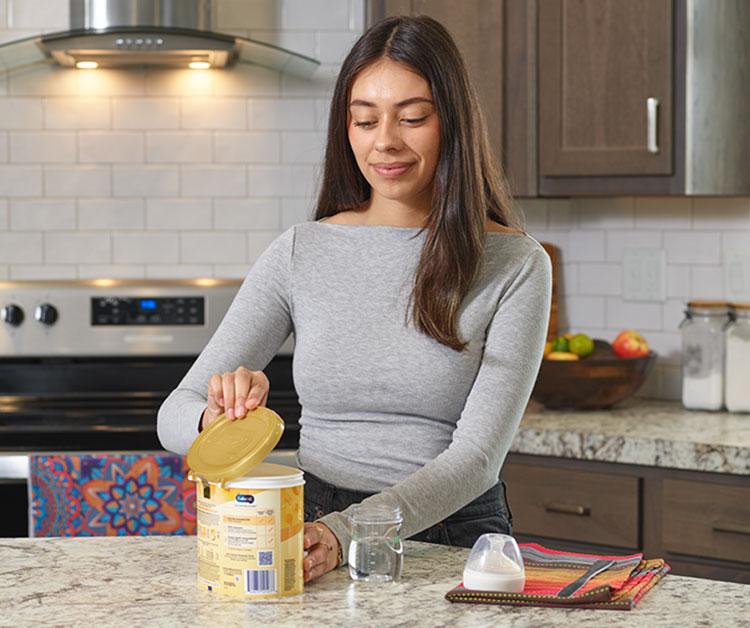
In this guide, we’ll cover everything you need to know about how to safely store and prepare our infant formula.
The safety of your children is always our top priority, and should be for every parent. A lot of parents want to understand how to get the most out of their baby formula purchase, and we’re always happy to help you explore your options for ways to make your dollar go as far as it can. Always be sure to follow the instructions you see on the manufacturer label, and when in doubt, throw it out.
Formula Preparation Level | Location | Duration |
|---|---|---|
Unopened formula | Cabinet or pantry, away from sunlight | Until expiration date |
Unprepared powder formula | Cabinet or pantry, away from sunlight | Within 30 days after opening, or until expiration date; whichever is sooner |
Powder prepared but unused (refrigerated) | Refrigerator | Up to 24 hours |
Left out after preparation | Somewhere in room temperature (60-70 ºF) | Up to 2 hours |
During feeding session | With your baby | After feeding begins, discard after one hour |
Some parents might wonder why it’s so important to follow these guidelines strictly.
Yes, one great way to make your formula last longer is by using the pitcher method. This involves preparing a large batch of formula at once and storing it in the refrigerator. It can save time and reduce waste, especially if your baby’s feeding schedule is unpredictable.
We understand that parents want to get the most out of their purchases, and that’s why we do everything we can to make it easy and fun for you to give your children the best start in life. When it comes to saving on baby formula, Enfamil Family Beginnings® offers something for everyone. This rewards program is packed with benefits designed to help you provide the best nutrition for your baby while keeping costs low.
Joining Enfamil Family Beginnings is quick, easy, and free. Don’t miss out on the best way to save on baby formula while ensuring your baby gets top-quality nutrition.
All information on Enfamil, including but not limited to information about health, medical conditions, and nutrition, is intended for your general knowledge and is not a substitute for a healthcare professional's medical identification, advice, or management for specific medical conditions. You should seek medical care and consult your doctor or pediatrician for any specific health or nutrition issues. Never disregard professional medical advice or delay seeking medical treatment, care, or help because of information you have read on Enfamil.